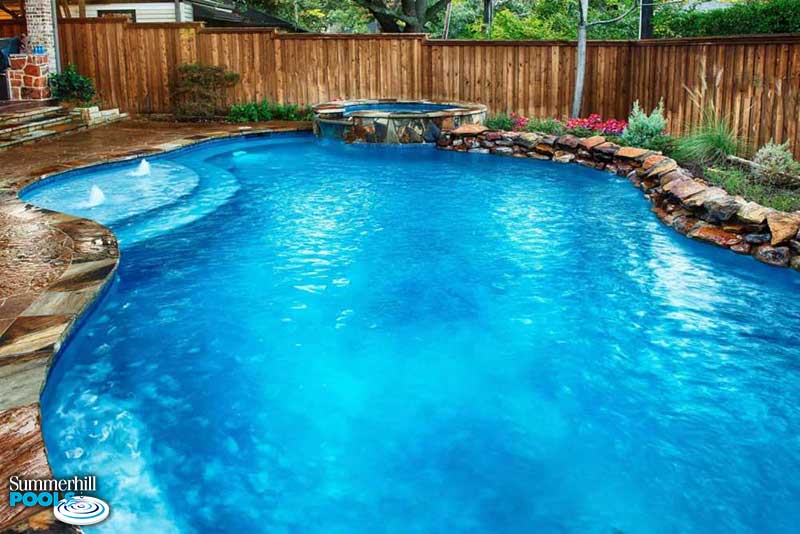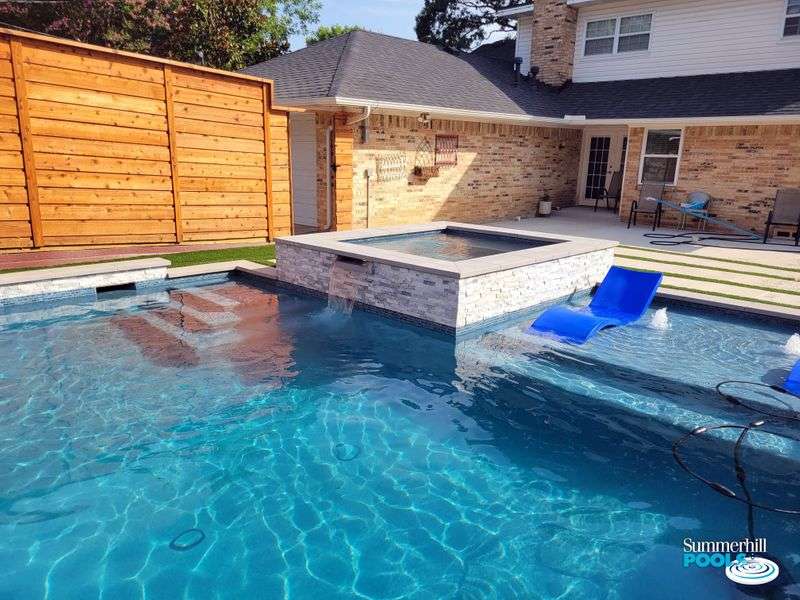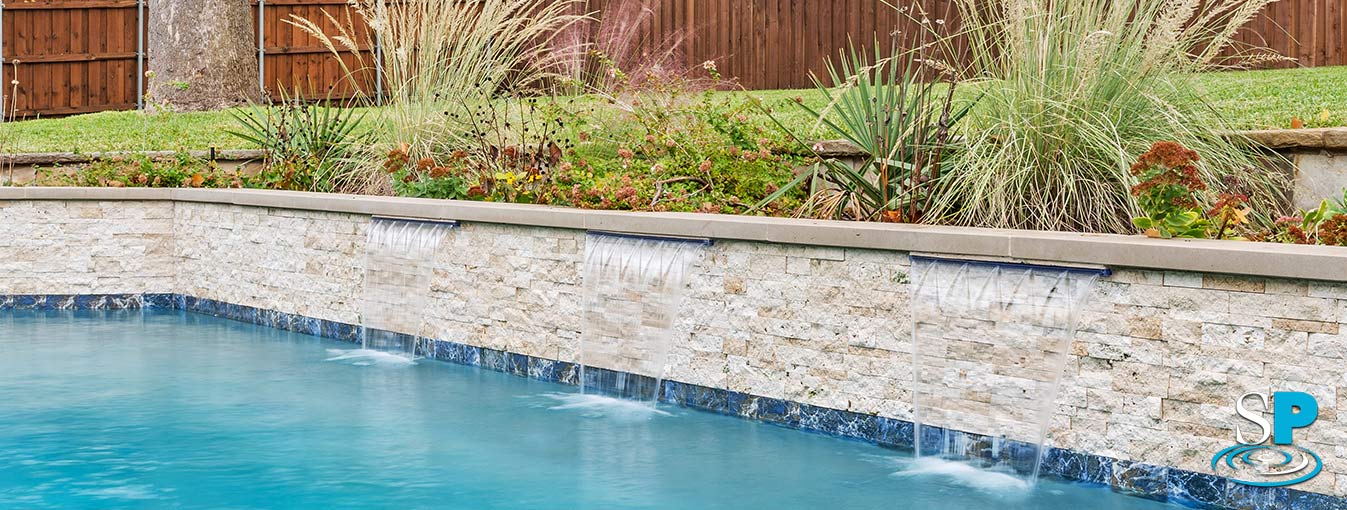 Many of us had dreams of having our own backyard pool to lounge in during the sweltering heat of summer during our childhood. If you’ve managed to make that dream a reality, you’ve probably also realized that that childhood daydream neglected to account for all the upkeep a personal pool requires. There’s no need to worry, though; below you’ll find a guide to help you figure out what pool maintenance requires so you can keep your pool looking like the pristine oasis of your childhood daydreams.
Many of us had dreams of having our own backyard pool to lounge in during the sweltering heat of summer during our childhood. If you’ve managed to make that dream a reality, you’ve probably also realized that that childhood daydream neglected to account for all the upkeep a personal pool requires. There’s no need to worry, though; below you’ll find a guide to help you figure out what pool maintenance requires so you can keep your pool looking like the pristine oasis of your childhood daydreams.
What do pools need to routinely be checked for?
pH
It’s important to keep track of how basic or how acidic the pool water is. If neglected, pH levels that are too high or too low can damage your pool’s structure and equipment, which could lead to you having to pay for costly repairs in the future that could have been easily avoided.
Chlorine
When testing for chlorine, you are really testing for free chlorine. Free chlorine is hypochlorous acid, also known as leftover chlorine, that remains after the chlorine has killed the other bacteria in the pool. You want to make sure your chlorine levels are within the correct range for a comfortable and safe pool experience.
Total Alkalinity
Total alkalinity measures all alkaline substances in the water – carbonates, bicarbonates, and hydroxides – which stabilize the pH. This differs from testing the actual pH because this measurement assesses how well the pool’s water can resist a change in pH.
Cyanuric Acid
Cyanuric acid acts like sunscreen for pool chlorine. It acts as a bugger so that UV light doesn’t kill the chlorine in the water, which is necessary to keep your pool clean and safe.
Calcium Hardness
This measurement involves testing how much calcium is dissolved in the pool, or how hard or soft the water is. If the water is too soft, the water will take calcium by eroding plaster, tile grout, and concrete which can cause your pool to erode. If the water is too hard, the calcium will cloud the water and solidify on the pool walls and equipment, also known as scaling, dramatically increasing how often you have to clean your pool to keep it in tip-top shape.
What Range Should My Pool Water Chemistry Be At?
Here’s a quick rundown of what range you should be looking for while testing each parameter.
- Total Alkalinity – 80-120 ppm
- pH: 7.2-7.8
- Calcium Hardness: 200-400ppm
- Cyanuric Acid: 20-50 ppm
- Chlorine: 2.0-3.0 ppm
How Do I Test My Pool’s Chemistry?
Now that you know what to test for and what results are ideal for each test, you might be wondering what tools you can use to actually conduct the test. Below is an overview of the different types of tests you can use.
Test Strips
To use test strips, simply dip the test strips into the water and compare the color to the chart
Liquid Testing Kits
To use liquid testing kits, fill the given test-tube halfway with pool water and then add two drops of the pH Test Indicator. Then, shake and compare the color result with the given chart. You may have to repeat this test a couple of times to read the different levels of alkalinity, calcium hardness, and cyanuric acid.
Digital Pool Testers
These tests often look just like a regular thermometer. Overall, they provide the fastest and most accurate results. To use a digital pool tester, just dip the digital tester in and it will give you the readings.
Pool Maintenance Services
Pool maintenance is not only time-consuming, but it can also be a hassle. Summerhill Pools can handle all of your weekly pool maintenance needs so you can kick back, relax, and go for a swim whenever you decide. We have been serving the Dallas area since 1989 and have a knowledgeable team of technicians ready to ensure your pool is always running smoothly. Give us a call today!



